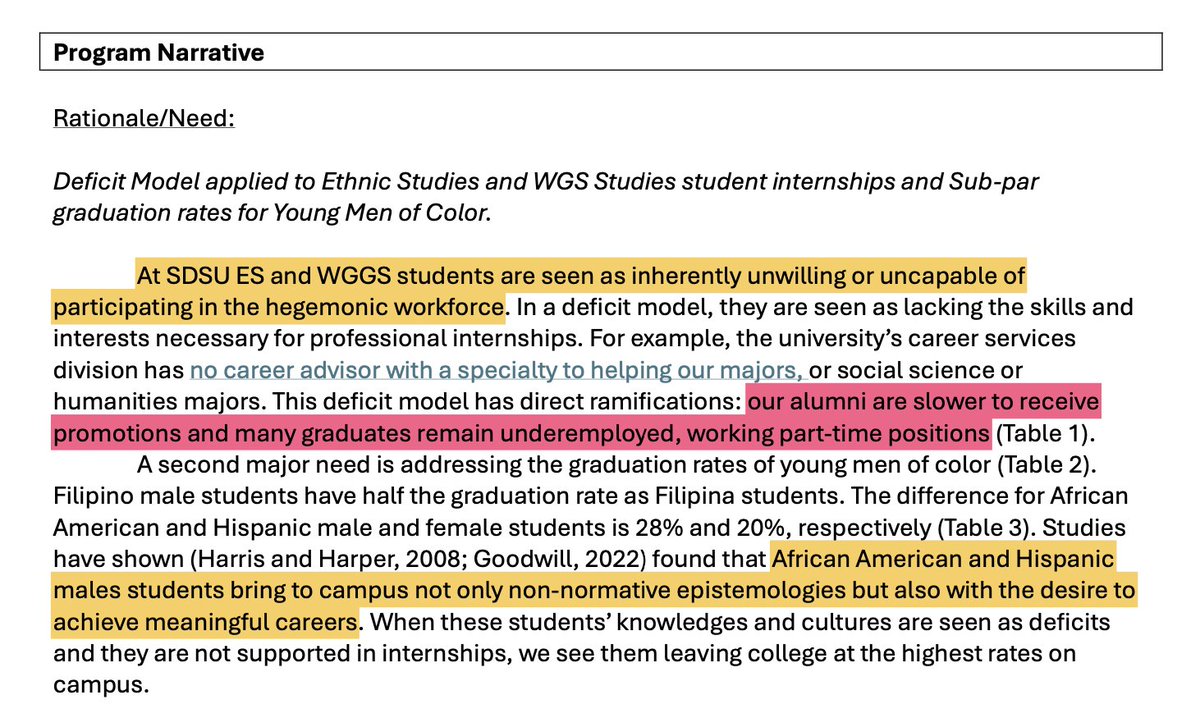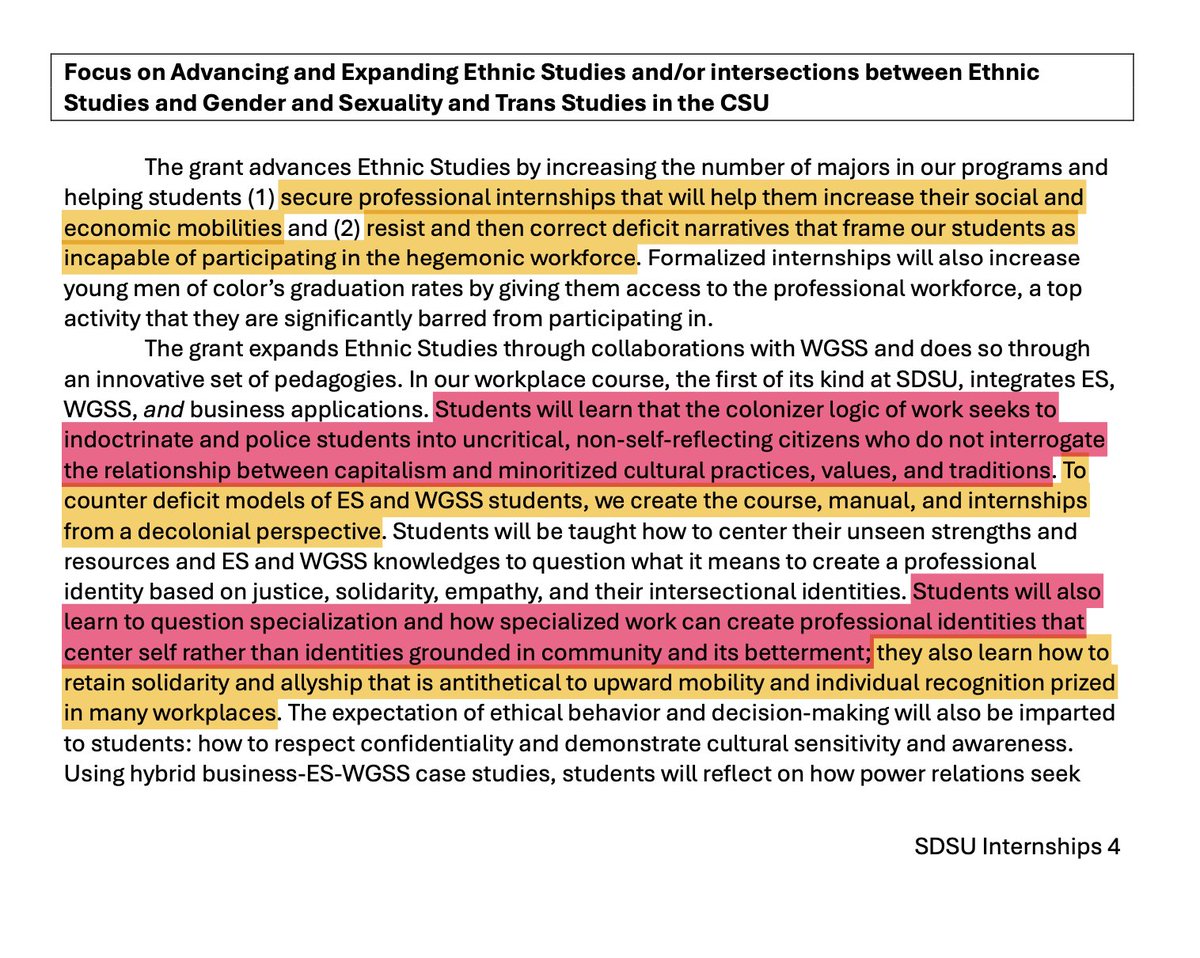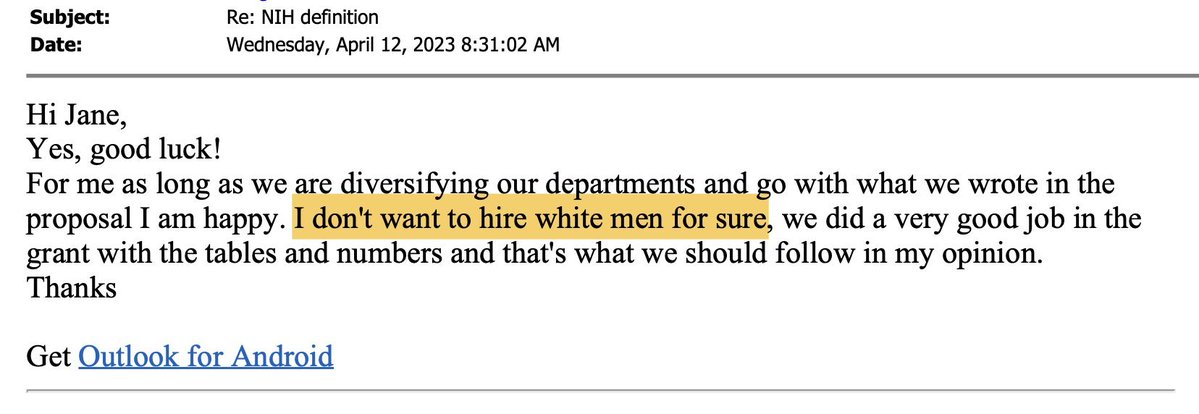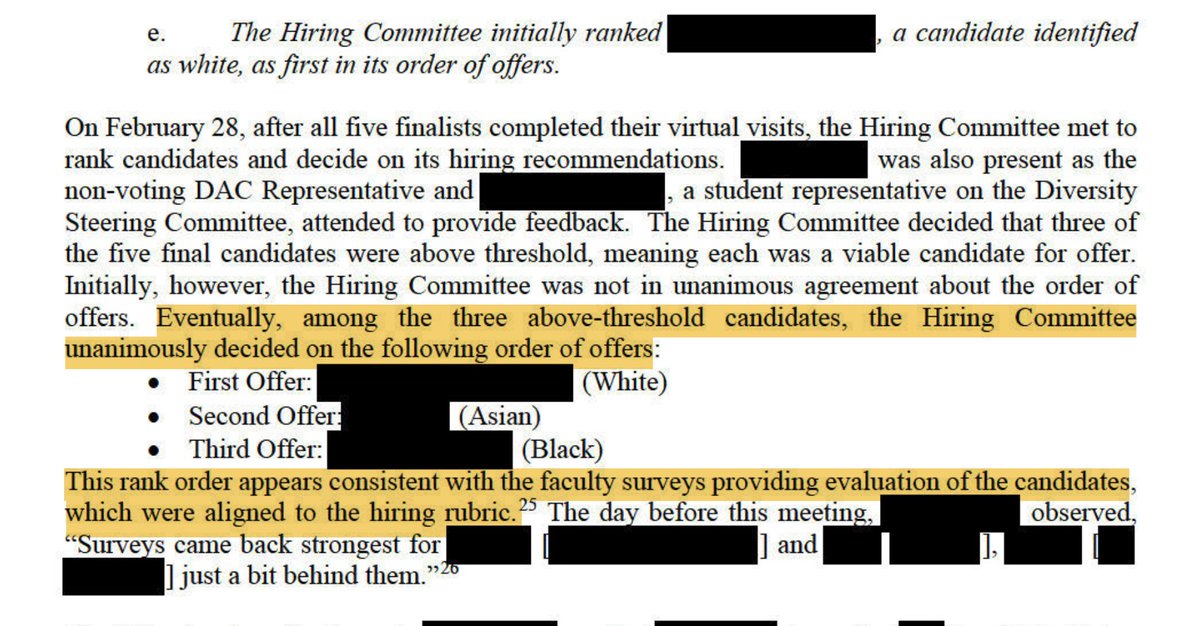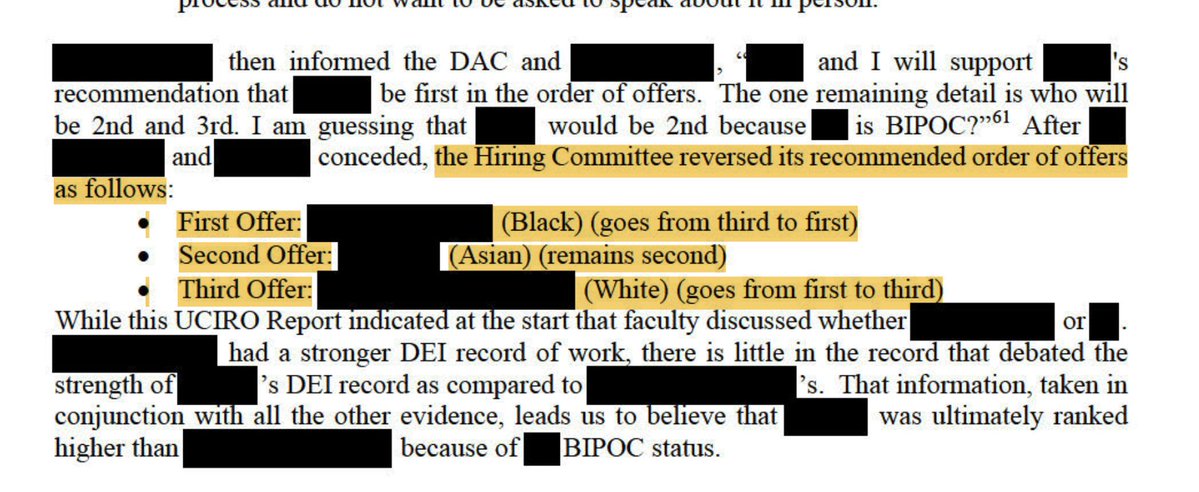SCOOP: The NIH is giving $250m to universities to hire medical scientists who show “an interest in DEI.”
The NIH says the program doesn't “discriminate against any group.” Public records tell a different story.
As one email put it, “I don’t want to hire white men for sure."
The NIH says the program doesn't “discriminate against any group.” Public records tell a different story.
As one email put it, “I don’t want to hire white men for sure."

The NIH FIRST program funds “cluster hiring” at universities and med schools around the country.
The program follows a popular model, reasoning that universities would hire minorities as a byproduct of heavily weighing DEI statements. On paper it bars racial preferences.
The program follows a popular model, reasoning that universities would hire minorities as a byproduct of heavily weighing DEI statements. On paper it bars racial preferences.

But in grant proposals, for projects funded by the NIH, universities repeatedly and openly state they'll restrict who they hire on the basis of race.
Vanderbilt University Medical Center promises to hire 18-20 "Black, Latinx, American Indian, and Pacific Islander" scientists.
Vanderbilt University Medical Center promises to hire 18-20 "Black, Latinx, American Indian, and Pacific Islander" scientists.

Emails show how this worked in practice.
At the University of New Mexico, the program gave each underrepresented minority a "second look" in the search process.
In one email, faculty ask whether a south Asian job finalist was a "second look" candidate.
At the University of New Mexico, the program gave each underrepresented minority a "second look" in the search process.
In one email, faculty ask whether a south Asian job finalist was a "second look" candidate.

At one point, an NIH program official stated that race candidates should have no bearing on hiring.
This confused the grant recipients, who speculated that maybe the official "has" to say it that way, noting that she’d hinted at this before over zoom.
This confused the grant recipients, who speculated that maybe the official "has" to say it that way, noting that she’d hinted at this before over zoom.

The records raise serious questions about the NIH FIRST program. And about the use of diversity statements in faculty hiring. Lawmakers should investigate both.
I provide the full story in today's Wall Street Journal. Please give it a read.
wsj.com/articles/how-d…
I provide the full story in today's Wall Street Journal. Please give it a read.
wsj.com/articles/how-d…
• • •
Missing some Tweet in this thread? You can try to
force a refresh









